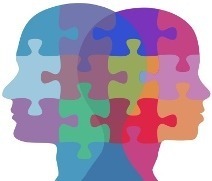Questioning brain health status quo in depression and Alzheimer’s
November 19, 2013//Comments Off on Questioning brain health status quo in depression and Alzheimer’s
 Two good recent pieces in The New York Times bring to the forefront the need to question status quo mindset and practices about how to measure and enhance brain health.
Two good recent pieces in The New York Times bring to the forefront the need to question status quo mindset and practices about how to measure and enhance brain health.
Sleep Therapy Seen as an Aid for Depression
- “Curing insomnia in people with depression could double their chance of a full recovery, scientists are reporting. The findings, based on an insomnia treatment that uses talk therapy rather than drugs, are the first to emerge from a series of closely watched studies of sleep and depression to be released in the coming year…If the figures continue to hold up, the advance will be the most significant in the treatment of depression since the introduction of Prozac in 1987.”
- “The therapy that Dr. Manber, Dr. Carney and the other researchers are using is called cognitive behavior therapy for insomnia, or CBT‑I for short. The therapist teaches people to establish a regular wake-up time and stick to it; get out of bed during waking periods; avoid eating, reading, watching TV or similar activities in bed; and eliminate daytime napping.”
- “In April 2012, the Food and Drug Administration approved Eli Lilly’s radioactive molecule for patients who are being evaluated for Alzheimer’s disease and other causes of cognitive decline that result in forgetfulness or disorientation.”
- “The question patients and their families should be asking is, what does this test really offer? …Let’s be clear: it does not cure the disease or affect symptoms. At best it identifies what might be causing a patient’s forgetfulness. But, at worst, it can get that diagnosis wrong. According to the company’s own post-mortem study of 59 terminally ill patients, false positives in scans for the presence of amyloid were reported in up to 3 percent of cases, while up to 20 percent of cases resulted in a false negative: patients were diagnosed as not having amyloid and thus Alzheimer’s, even when they did…To make things more confusing, while colloquially called an “Alzheimer’s test,” the scan doesn’t diagnose Alzheimer’s dementia — it only determines the presence of amyloid. And our understanding of the connection between the two is shaky. While everyone who has Alzheimer’s also has amyloid, not everyone with amyloid has Alzheimer’s dementia. Almost a third of cognitively normal elderly people have these protein clusters in their brains. On the scan they would light up. But those patients don’t have Alzheimer’s dementia and we don’t know how likely they are to develop it in the future. Imagine the anguish of that error.”
Relates articles:
Posted in Brain/ Mental Health
About SharpBrains
SHARPBRAINS is an independent think-tank and consulting firm providing services at the frontier of applied neuroscience, health, leadership and innovation.
SHARPBRAINS es un think-tank y consultoría independiente proporcionando servicios para la neurociencia aplicada, salud, liderazgo e innovación.


